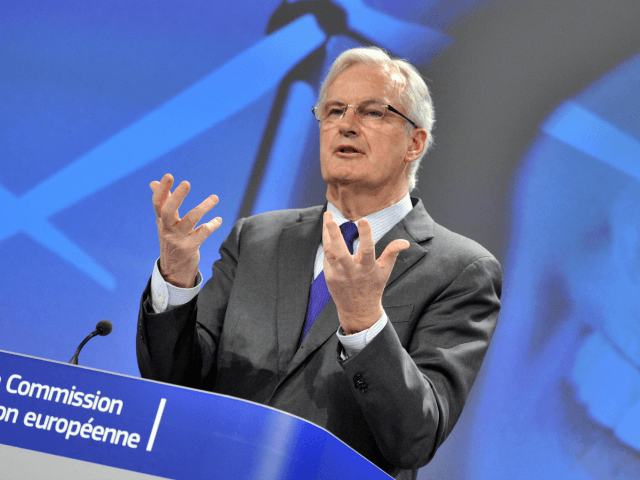EU chief Brexit negotiator Michel Barnier has hailed mass immigration to Europe as essential to “human progress”, and as early as 2004 was demanding that “racism” and anonymity be wiped from the internet.
Though representing so-called ‘centre-right’ politics, the veteran Eurocrat — who has served in several French cabinet positions as well as at European level — has consistently denounced borders and argued that every EU nation be obliged to welcome huge numbers of migrants from the third world.
– ‘Towards a New Europe’: migration ‘sustains our welfare system’ –
In a 2011 speech entitled ‘Towards a New Europe’, Barnier said that Europe “must … be a place which welcomes immigrants”, declaring this to be the only way to “ensure that pensions and the social safety net can be funded”.
“We need immigration to guarantee the sustainability of our welfare systems, and the dynamism of our economy,” he said, condemning how — at elections in Finland and France — “citizens cast their votes for extremist and populist movements which are seeking to retreat behind their national borders”.
It is unclear why Barnier believes that Europe can offset ageing populations with mass migration of unskilled migrants from third world countries when data shows it to be a serious drain on taxpayers across the EU.
Aside from the threat to jobs posed by automation — with analysts from Citi bank and academics at Oxford University warning that 57 per cent of jobs across the OECD will likely be lost to automation — non-EU migrants cost the UK treasury £16 billion net per year, while across the continent they have more than double the unemployment rates of Europeans.
This trend is borne out by a variety of datasets from different European countries. For example, 65 per cent of non-European migrants who arrived in the Netherlands during the 1990s are still living on welfare.
– Movement of peoples is a source of “human progress” –
“The most important point to remember is that the mobility of peoples and individuals in Europe has been a source of human progress and personal fulfilment,” Barnier proclaimed in his speech at Humboldt University.
“I am thinking of Arab mathematicians and the students from across Europe who would come together in the 16th century to universities in Germany and the Netherlands, for example.”
While indeed professorships in Arabic were set up in many European universities from the 16th century, according to the Warburg Institute’s Centre for the History of Arabic Studies in Europe — during the same period of history, Ottoman armies were invading and conquering lands in Central Europe including Hungary, and Bulgaria, which was occupied for 500 years.
During this time, Ottoman Turks levied various taxes on Bulgarians such as jizya, the Islamic tax demanded from non-Muslims living under Muslim rule. The most infamous of these was the “blood tax”, which saw the Ottomans remove every fifth male child from Bulgarians families and force them to serve in their army.
– We need to “build a common asylum system” to show our solidarity –
Four years before the “migrant crisis”, Barnier said that every EU nation must be forced to take third world migrants, insisting it was necessary to “build a true common asylum system in Europe, one which gives tangible form to our European values of humanism and solidarity”.
– Calls to censor “intolerant” opinions –
And in 2004, the Brexit negotiator urged Europe to work together to stifle anonymity and censor “intolerant” websites and opinions on the internet, at a two-day conference aimed at finding ways to keep “racist” information off the Web.
“Our responsibility is to underline that by its own characteristics — notably, immediacy and anonymity — the Internet has seduced the networks of intolerance,” the then French foreign minister said in opening remarks to the Organization for Security and Co-operation in Europe (OSCE) conference.
– “Teach” Britain a Lesson –
Barnier hit the headlines this week when he threatened to “teach the British people and others what leaving the EU means”, Breitbart London reported Monday.
The former French foreign minister claimed Brexit would be “an educational process” for Great Britain, warning: “There are extremely serious consequences of leaving the single market and it hasn’t been explained to the British people. We intend to teach people… what leaving the single market means.”

COMMENTS
Please let us know if you're having issues with commenting.